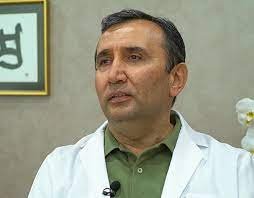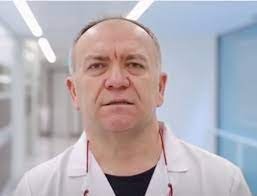Best Nephrology Hospitals in Turkey

Medical Park Group, Istanbul
Istanbul, TurkeyMulti-Specialty Hospital
Otakçılar Cd. No:78 Flat Ofis Aqua Court E Blok 3. Kat Eyüp
Specialities
136Doctors
93Beds
5600










Florence Nightingale Hospital, İstanbul
Istanbul, TurkeyMulti-Specialty Hospital
Merkez, Abide-i Hürriyet Cd No:166
Istanbul 34381
Specialities
102Doctors
18Beds
804










American Hospital
Istanbul, TurkeyMulti-Specialty Hospital
Güzelbahçe Sok, No:20,
Specialities
139Doctors
110Beds
200










Medipol University Hospital, Istanbul
Istanbul, TurkeyMulti-Specialty Hospital
TEM Avrupa Otoyolu Göztepe Çıkışı No: 1, Bağcılar,Istanbul,Turkey
Specialities
126Doctors
31Beds
470










Liv Hospital
Istanbul, TurkeyMulti-Specialty Hospital
Ulus Mahallesi, Canan Sk., Beşiktaş/İstanbul, Turkey
Istanbul 34340
Specialities
95Doctors
3Beds
159



Acibadem Hospitals Group
Istanbul, TurkeyMulti-Specialty Hospital
Altunizade Mah. Yurtcan
Istanbul 34662
Specialities
23Doctors
33Beds
550












Memorial Hospitals Group, İstanbul
Istanbul, TurkeyMulti-Specialty Hospital
Kaptan Paşa Mah. Piyale Paşa Bulvarı Halit Ziya Türkkan Sok. Famas Plaza C. Blok Şişli
Istanbul 34384
Specialities
85Doctors
61Beds
292










Medicana International Istanbul
Istanbul, TurkeyMulti-Specialty Hospital
Kısıklı Mahallesi, Alemdağ Cd. No:103, 34692 Üsküdar/İstanbul
Specialities
84Doctors
121Beds
1170










Koc University Hospital
Istanbul, TurkeyMulti-Specialty Hospital
Koç University Hospital, Davutpaşa Caddesi
Istanbul 34363
Specialities
44Doctors
27Beds
404










Okan University Hospital, Tuzla
Istanbul, TurkeyMulti-Specialty Hospital
İçmeler District Aydınlıyolu Street No:2 İçmeler
Istanbul 3494
Specialities
71Doctors
38Beds
250









Top 10 Nephrology Hospitals Near Turkey
| Hospital | Rating | Doctors | Location |
|---|---|---|---|
| Medical Park Group, Istanbul | ---- | 9393 | Istanbul |
| Florence Nightingale Hospital, İstanbul | ---- | 1818 | Istanbul |
| American Hospital | ---- | 110110 | Istanbul |
| Medipol University Hospital, Istanbul | ---- | 3131 | Istanbul |
| Liv Hospital | ---- | 33 | Istanbul |
| Acibadem Hospitals Group | ---- | 3333 | Istanbul |
| Memorial Hospitals Group, İstanbul | ---- | 6161 | Istanbul |
| Medicana International Istanbul | ---- | 121121 | Istanbul |
| Koc University Hospital | ---- | 2727 | Istanbul |
| Okan University Hospital, Tuzla | ---- | 3838 | Istanbul |
Questions & Answers on "Nephrology" (150)
DMSA-Renal Scan test report The scan was performed 2 hours after an I,v, injection of 150 MBq of 99mTc-DMSA with patient under the gamma camera in posterior, anterior, anterior & posterior oblique projections. The scan shows normal-sized, regularly outlined right kidney in its normal anatomical position with fair homogeneous radiotracer uptake, Mild cortical damage is appreciated is appreciated at upper pole. The normal sized irregularly outlined left kidney is visualized in its normal anatomical position inhomogeneous radiotracer uptake , cortical damage is noticed along its upper margin and lower poles Morphologyicall normal, fair functioning right kidney Normal sized reduced functioning left kidney with evidence of cortical damage along its upper and lower margin
Female | 7
The test report shows that your right kidney is good. But the left kidney has a bit of trouble. Some damage is there in the outer part of the left kidney. You may not have any problems right now. But you should look for pain or change in urine. To help your left kidney, you should drink lots of water. You should also talk to a nephrologist for more advice soon.
Answered on 23rd May '24
Read answer
creatine 4.7 is normal gfr 8.5
Female | 75
A creatinine level of 4.7 and GFR of 8.5 indicate significant kidney function impairment. It's crucial to consult a nephrologist immediately for further evaluation and management. They can provide personalized advice and treatments to help preserve kidney function and maintain overall health.
Answered on 2nd July '24
Read answer
Hello (apologies for long post) Caucasian, Male, 60, 6'0", 260 lbs. Meds: Lisinopril 40 mg, Metoprolol 50 mg x2 a day, Amlodipine 10 mg, Furosemide 20 mg, Glimepiride 1 mg, Janumet 50-1000 x 2, Atorvastatin 10 mg...NO drink/smoke or rec. drugs. Issue: After a lot of work, have lost 40+ lbs in last 5-6 years...blood pressure 130/85, A1c 7.0 ...here is the issue. In March of 2023, after years of my GFR staying constant in mid/upper 40's, (not great, but consistent), it was lower at 41. Dr wanted to check it again in 1 month. I very strictly controlled my diet/sugar/protein/soda/increase water intake, etc...take meds religiously...GFR dropped to 35. Dr sent me to a nephrologist, but before the scheduled appointment (which was 6 weeks later), he took me off of Triamterene...said it can be hard on kidneys. When the nephrologist sent me for labs, GFR went UP to 50. Another test 2 weeks later and GFR went up to 55. Nephrologist says that removing Triamterene from regimen played NO part in GFR rising...put me on Spironolactone due to edema returning . 6 months later at next check-up, all numbers and BP continue to be good, but GFR back down to 40. Is it possible that the diuretics have been hard on my kidneys and causing the lower GFR. I understand with years of HBP/diabetes, the GFR is not ideal, but I'd like to keep it in the 50's if possible. Family doctor took me off the Spironolactone and put me on Lasix in March of 2024...bloodwork coming up in a couple of weeks. Family doctor seems to think the diuretics have contributed to lower GFR...Nephrologist says they have nothing to do with my fluctuating GFR numbers... seeking input from anyone here with knowledge/experience...appreciate any insights re: affect of diuretics on GFR...alternatives to traditional diuretics, etc. I've read loop diuretics like Lasix best for kidney issues.
Male | 60
Diuretics such as Triamterene may have been responsible for your kidney problems, which in turn may have resulted in the increase or decrease of your GFR. The switch from you to Lasix by your family doctor is a good decision as it is a diuretic that may be less harsh on the kidneys. Continue to collaborate with a nephrologist to discover the optimal treatment for you.
Answered on 22nd Aug '24
Read answer
Hi doctor....I have 2-3 small simple kidney cysts on right kidney....left has no cysts....I am just 39....how common it is....and the largest cyst measure 15mm*11mm
Female | 39
Kidney cysts are like small fluid-filled sacs that can develop on the surface of the kidneys. In fact, many people have them without even knowing it because they often don't cause symptoms. The fact that your left kidney is cyst-free is a good sign. As for the size of the largest cyst, 15mm*11mm is considered small and generally not a cause for worry. I'd recommend keeping an eye on them with periodic check-ups to ensure they're not growing or causing any issues. If you experience any new symptoms like pain or changes in urination, schedule an appointment with urologist for further guidance.
Answered on 2nd Dec '25
Read answer
Pain in urine and also in kidney and some thick white paste in urine
Female | 22
You may have pain when peeing, discomfort near your kidneys, and thick white discharge in your urine. These are signs of a urinary tract infection (UTI) or a kidney infection caused by bacteria entering the urinary tract. Drinking plenty of water, taking antibiotics prescribed by a doctor, and resting can help improve your condition. However, it is essential to visit a nephrologist for a proper diagnosis and the right treatment.
Answered on 29th July '24
Read answer
Sell my kidney urgent money.
Male | 46
A kidney is not a safe or legal way to make money. Our bodies need both kidneys to function properly. If you're facing financial difficulties, there are better options available. In fact, reaching out to social services or financial counsellors can provide you with resources and support. It's important to prioritize your health and well-being. Let's work together to find a solution that doesn't put your health at risk.
Answered on 2nd Dec '25
Read answer
How much you will pay for kidney
Male | 45
I want to reassure you that selling organs, like a kidney, is illegal and unethical. The idea of selling organs can be tempting when facing financial difficulties, but it's crucial to prioritize your health and well-being. If you are experiencing financial hardship, there are resources available to help. I recommend reaching out to social services or financial aid organizations for assistance. Your health is invaluable, and there are better ways to address financial challenges.
Answered on 8th Dec '25
Read answer
Sometimes when I’m in a certain position and I cough or laugh hard my kidney will have a quick sharp pain. It has happened twice today and I noticed it about a month ago I would say but it’s not often. Should I be concerned about this? It is giving me anxiety.
Female | 18
You may have "referred pain" from kidneys. Sometimes, coughing or laughing hard moves kidneys slightly, causing sharp pain. This could be a kidney stone or muscle strain near the kidney. To ease anxiety, drink water and avoid motions triggering pain. If pain continues or worsens, contact a nephrologist for evaluation.
Answered on 22nd Oct '25
Read answer
Dialysis patient in one years
Male | 34
For a dialysis patient unwell for a year, it’s important to stay alert to symptoms like fatigue, swelling, or difficulty breathing, as these may indicate the dialysis isn’t working effectively. This can happen due to missed treatments, not taking medications, or poor diet choices. It's essential to consult the dialysis team to address these issues and adjust the treatment plan for better health.
Answered on 9th Dec '24
Read answer
Cardiac or diabetes and issues is proteinurea
Male | 67
If someone is having problems with their heart or diabetes and is also having protein in their urine, this may mean there could be damage to the kidneys. The signs of this illness are the puffiness of the body, the appearance of bubble-like urine, and the presence of hypertension. This can be caused by increased sugar levels or high blood pressure in the blood. Eat healthy, control your blood sugar, and take medication as directed.
Answered on 26th June '24
Read answer
I want to sell my kidney
Male | 25
It's important to know that selling kidney is illegal and unsafe. The sale of organs is prohibited because it can lead to serious health risks for both the donor and the recipient. In fact, there are ethical concerns about exploiting vulnerable individuals for organ donation. If you are in need of financial assistance, there are other legal and safer options available. I recommend reaching out to social services or financial counseling services for support.
Answered on 30th Dec '25
Read answer
I have started having sharp pain in right back side so I go to the doctor and I did sonography and my sonography showed 7mm kidney stone at right kidney in upper calayx and irregular urinary bladder wall? cystitis pvr 5cc noted then doctor give me medicine I took tablets 15 days and now after two months Vomiting once and fever at night and back pain on right side and little burning urine and weakness and I go to the bams doctor and he give me calcury tab 2tab two time a day for 10 days but this time no fever or vomate only sometime right back pain and sometime burning urine. Do I go back to the Calcuri tab at the same dose?
Male | 21
Your symptoms of back pain, urine burning, and general weakness are likely due to the kidney stone. I suggest you to keep on taking Calcury tablets as the BAMS doctor prescribed you. Stay well-hydrated and eat a balanced diet. If these symptoms last or worsen, it's vital to get medical help.
Answered on 22nd Aug '24
Read answer
I m in great problem. Pelvicalyceal system of left kidney is collaspsed calculas at right uretero-vesical junction, resulting obstructive uropathy (size : 4.9 mm) Small calculus within mid polar calyceal complex of right kidney (size : 8.0 mm) Right adrenal lipoma (size : 25.9 mm) and left side testis pain too.
Male | 41
The obstruction in the ureter which is causing the kidney stones can be the reason for the symptoms like pain while urinating, the presence of blood in the urine, or discomfort in the back. Furthermore, the small stone in your right kidney can result in pain as well. On the other hand, the lipoma in your right adrenal gland most probably doesn't cause any symptoms. Testis pain is a symptom that can indicate several different issues. You should consult a nephrologist for the best course of treatment.
Answered on 7th Oct '24
Read answer
My father is suffering from CKD stage V now my USG report is showing ADPKD MY question is i recently joined gym for my body transformation fat to fit for that goal i have to eat 2 grams per body weight of protein is it good for my kidney also i want to add creatine supplement can i add that supplement
Male | 24
The function of the kidneys worsens when you eat large amounts of protein, and the kidney problems become more severe. The extremely high rates of creatine supplements can make the kidneys unable to function properly. Before you start any regimen, consult with your doctor to figure out the best approach that is right for your body.
Answered on 3rd July '24
Read answer
Urine culture albumin-p resent in tracces,,,,ka matlab
Female | 33
If your urine has trace amounts of albumin, it means a small amount of protein got into it. This might show your kidneys have trouble or infection. It could cause swelling, frothy pee, or feeling tired. Make sure to drink lots of water, eat healthy, and skip salty foods. But if this goes on, you should see a nephrologist so they can check it out and treat you right.
Answered on 5th Sept '24
Read answer
My WNC in urine is elevated to 250. What is the cause and treatment?
Female | 49
If your urine has many white blood cells or "WNC," it signifies a urinary tract infection. Peeing may cause pain, and you might feel an urge to pee frequently with cloudy urine. Drinking lots of water helps, but antibiotics from a nephrologist are needed to cure the infection.
Answered on 23rd May '24
Read answer
I am 17 year old male my urine color is yellow can you tell me why since I was a child
Male | 17
Urine normally appears yellow due to urochrome pigment. Darker yellow often results from dehydration or certain foods consumed. Drinking more water typically lightens the color. Pain or burning during urination merits discussing with a urologist. Urochrome presence alone is usually innocuous and not a major concern. But combined with other symptoms, it may signal an underlying issue requiring medical evaluation. Overall, yellowish urine alone is generally harmless, as long as no other troubling signs accompany it.
Answered on 26th June '24
Read answer
Kindney stone 3.6 mm Please tell me about description
Male | 30
A stone of 3.6 mm in size is akin to having a mini boulder in the kidney. Sometimes, they can even make you feel pain in the areas of your belly, side, or back. The rock-like substances can be caused by dehydration and certain foods. Drinking a lot of water will aid in the process of passing the stone. If it's too large, a doctor may help crush it into smaller pieces or take it out.
Answered on 23rd Oct '24
Read answer
What type of disease is this symptoms, 1.swollen legs and hands 2.internal joints pain 3.feet and finger pain 4.smelly urine when peeing during swollen legs
Female | 27
Swelling of the legs and hands, painful joints inside your body, and also hurting feet and fingers can be caused by a condition called Rheumatoid Arthritis. The immune system gets confused and starts to attack the joints which are the reasons for the pain and inflammation. Smelly urine during swollen legs might be a sign of kidney problems. Enough water intake and medication are the ways to manage symptoms.
Answered on 23rd Sept '24
Read answer
My sister has blood urea-100,no diabetic,caretine - .75 As blood urea is high ,does it effect to Kidney? Please advice
Female | 36
Blood urea nitrogen levels can be a sign that the kidneys are not working as expected. This could be caused by various reasons such as dehydration, kidney disease, or certain medications. Common symptoms of kidney malfunctions are lack of energy, swelling, or alterations in the amount and color of urine. See nephrologist for further testing and get the treatment you need soon.
Answered on 20th Sept '24
Read answer
Get Free Assistance!
Fill out this form and our health expert will get back to you.